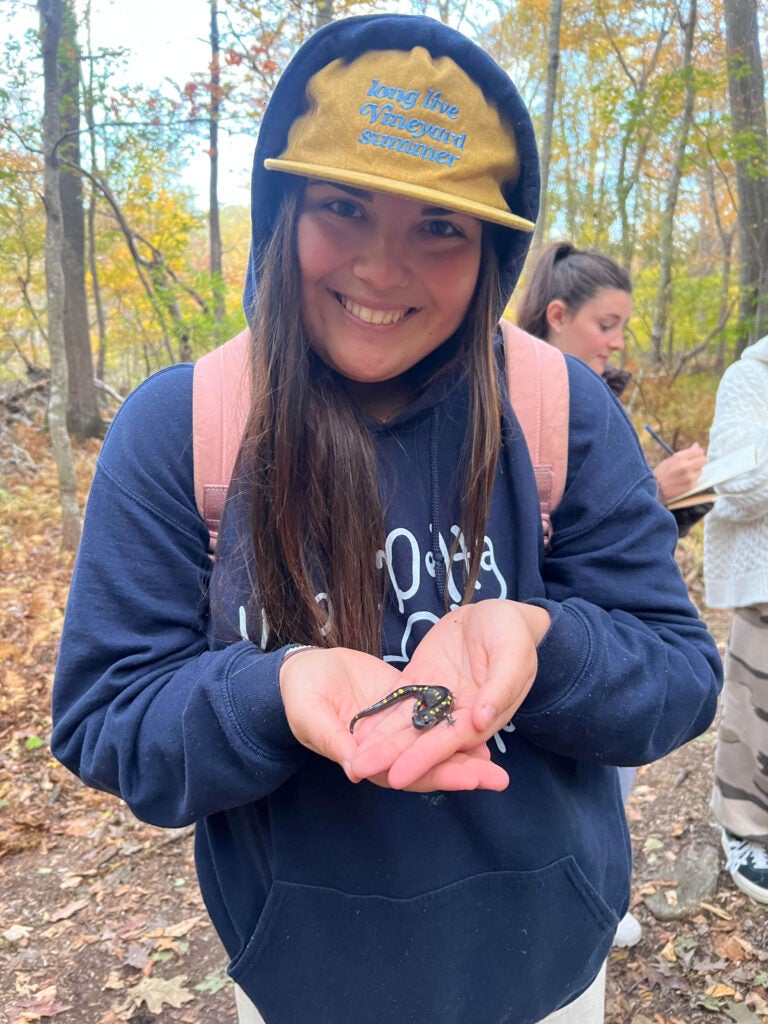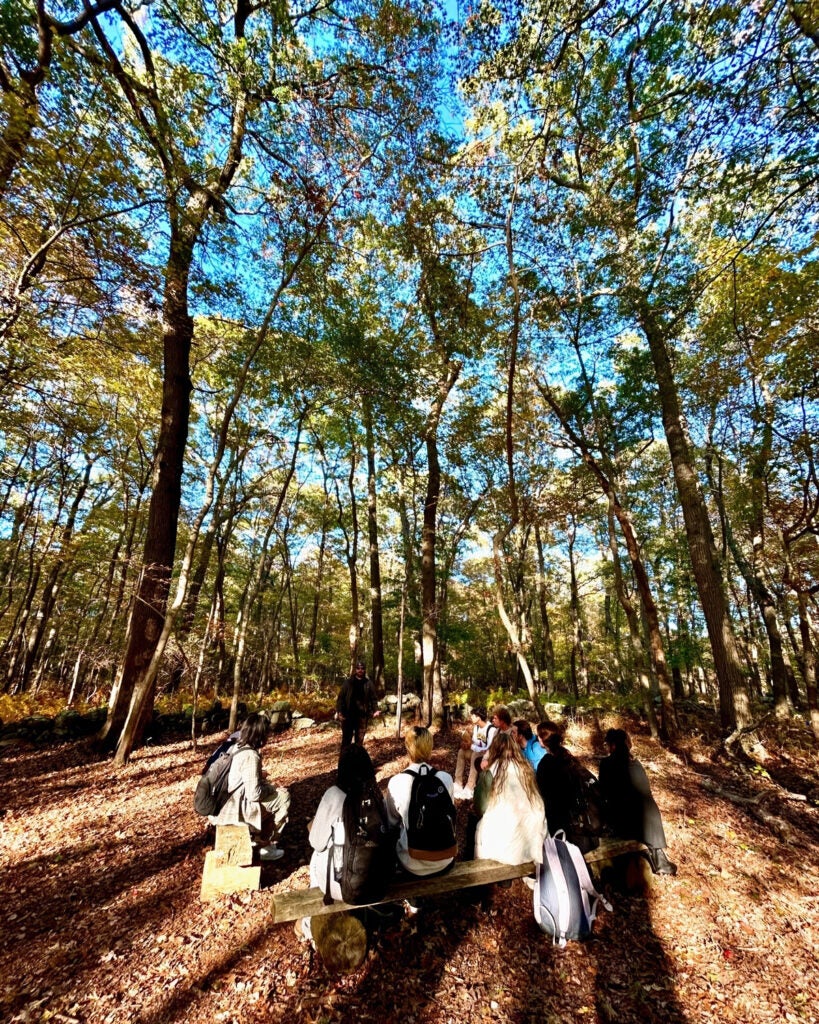KINGSTON, RI – Oct 22, 2024 – In a time where a sense of community is increasingly difficult to come by, creative expression may be among one of the strongest tactics of reconnection. Professor of professional and public writing and director of first-year writing, Stephanie West-Puckett, believes writing has the power to create communities and enlighten our own identities and relationships. That’s why she was eager to bring her previous work with National Day of Writing to URI when she joined as faculty in 2017.
Celebrating The National Day of Writing is a part of West-Puckett’s curriculum. Every year, first year students are required to attend a themed event. In the past, students have met on campus to write about wellness where they wrote letters to loved ones and practiced meditation. One year centered on advocacy by connecting with multicultural student groups. Another examined linguistic diversity accompanied by a dialect quiz from the New York Times.
This year West-Puckett joined forces with Madison Jones, professor of professional and public writing and natural resources science, to try something a little different. Knowing about Jones’s ongoing North Woods Project, together they combined their expertise and developed a two day event.
“North Woods is a place for thinking about our relationships, language, and the ecologies that we live in. I was looking for an opportunity to get involved with North Woods and this presented itself kind of beautifully for us to take National Day of Writing outside and to do a write out event,” said West-Puckett. “The event is also based on what the National Writing Project and the National Park Service are doing nationwide. There are ‘write out’ events happening all across the country for two to three weeks in October, and we’re really happy to join folks in doing that locally.”

This experiential version of National Day of Writing in North Woods proved to be a great success. Over two days, the program welcomed over 600 URI students and 50 elementary schoolers on the trails, joining thousands of National Writing Project teachers and their students in writing poetry for the planet. Everyone received a field journal, a pencil, printed copies of multilingual field guides and vocabulary lists. After the hike, the students continued this work in the classroom with their teachers and peers to write multilingual poems.
“We resourced words from Narragansett and regional Algonquin languages for the students to use,” said Jones. “They were encouraged to use the Latin names for plants. We’re also doing some Spanish translations of names, and then, of course, English, so that they can think about linguistic plurality, as they’re thinking about how they’re representing their experience with the natural world.”
While language exercises are beneficial to any writer – novice or professional – there’s nuanced and important reasons why naming elements of nature matters: colonial roots, and the deterioration of our relationship with nature combined with climate change.
A recent NPR piece on the Ornithological Society examined renaming bird species that are named after settler colonist scientists. Jones notes that there’s a permeating issue in the sciences right now around the fact that colonial history has pervasively shaped the ways that we think about what science is, and more importantly, who it is for. For example, North Woods are located on unceded territories of the Narragansett tribe.
“It’s really important to acknowledge this issue, but also to not treat it as if it was just a historical injustice, but one that is persisting and continuing to shape the ways that we work at URI,” said Jones. “The writing exercise post-hike encouraged [the students] to think about how, as a community, to include different perspectives into the process of naming and interacting with a space.”

The way we interact and name elements of nature is also deeply connected to climate change. There is a connection between the loss of biodiversity and the loss of the language used to describe that biodiversity. In 2015, the 10,000-entry Oxford children’s dictionary dropped around 50 words relating to nature – fern, willow, starling – and traded them for broadband, and cut and paste. This becomes a self fulfilling problem; once you start to lose these natural words, people do not have the words to articulate that loss. This plays into a phenomenon called shifting baselines.
“The environment is degrading at a very alarming rate, but because our lifetime is roughly 80-90 years, we don’t really see how drastic and dramatic those changes are. And so the baselines are changing, but it’s sort of invisible to us,” said Jones. To help contextualize this problem, the students were given the following poem, “After the Removal of 30 Types of Plants and Animals from the Junior Dictionary” by Rose McLarney:
Almond no more. Blackberry blanked out. Cheetah cast off.
But if no acorn, because the young will use language for nature less,
by that logic, no arousal, brief surge of blood that cannot continue
but lets lives be conceived. If no bluebell because flowers are fleeting,
no beauty to begin with for these bodies which wither. If no cygnet,
the downy being preceding permanent feathers, then no childhood
since those who are sheltered under a wing cannot stay, not the same.
As we might wish mother, many children’s earliest word, will always
be one they hold in mind, can we not let their mouths keep
mistletoe, minnow, and magpie? Leave a few things intact,
allow the possibility of turning books’ pages in reverse
to lobster then leopard then lark, to the letter of last—of lasting—of live
While reconciling the issues at hand will continue to be a tangled web we try to unravel, there’s still growth and beauty that emerges from spending more time in nature and reflecting on its place in our outer and inner worlds. “North Woods is a place for thinking about our relationships, writing, language, and the ecologies that we live in,” said West-Puckett. “It’s play and experimentation and fun! For me, it really has been about bringing community together in place.”
McLarney’s poem first appeared in The Kenyon Review, Vol. 39, Iss. 3., 2017.

